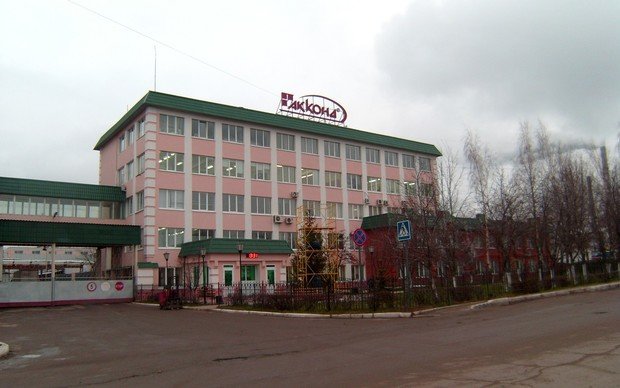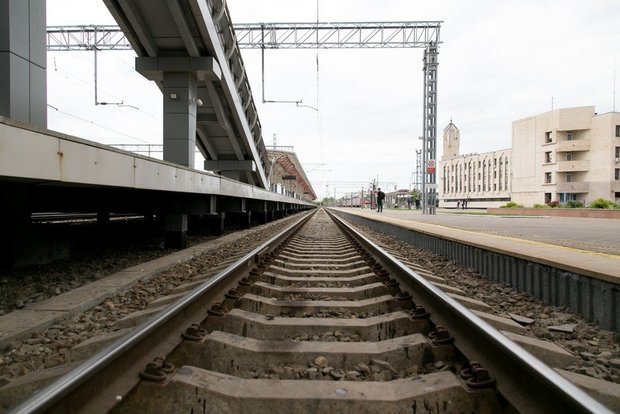''No train formed'': why Tatarstan cannot boost container cargo turnover with China
Kazan has not created a single pool of exporters yet to launch regular cargo trips to China
The opening of regular service of Russian Railways for the delivery of export-import goods from Kazan to China and back has been cancelled. One of the major exporters of sweets, the confectionery factory Akkond in Cheboksary, which has firm export contracts for supplies to China, has refused the services of the federal operator Russian Railways Logistics and TransContainer, and the Tatarstan manufacturers — Nefis–Bioproduct and Kukmor plant of metalware — have not completed the process of certification of consumer products. The container foreign trade turnover has halted at almost zero level – 20,000 tonnes. However, head of the Kazan regional agency of premium transport service of Russian Railways Elena Ashaeva assured shippers that railwaymen are ready at any time to give the green light to the launch of the Chinese train. Read more in the material of Realnoe Vremya.
Chinese train for the ''sweet couple'' cancelled
Russian Railways has abandoned the idea of forming regular container transportation to China in Kazan, as the regional department could not form a stable pool of shippers from Tatarstan, Chuvashia and Mordovia this year. Instead, the Kazan agency of premium transport service of the Gorky Railway collects applications of shippers in order to ''pick up'' Tatarstan containers to the trains of Russian Railways of Logistics departing from Moscow.
''We have not formed a single train to China so far,'' Alexander Cheremnov, Deputy Head of the Gorky Railway, the branch of Russian Railways in the Kazan region, admitted. According to him, the Moscow option with the inclusion of regional goods in the main Chinese train is much more effective, because it allows to send them with greater frequency and speed than if they departed from Kazan. ''It is a new product of Russian Railways aimed at increasing export-import turnover with China,'' explained Cheremnov. ''This train with the attached cargo containers follows the route Moscow-Blagoveshchensk. The delivery time has been reduced from 28 to 7 days.''

More details about the Chinese vector of Russian Railways were given us by Head of the Kazan agency of premium transport service Elena Ashaeva. She specified that Nefis Group from Kazan and the confectionery factory Akkond from Cheboksary, which could become anchors for the launch of regular service of Russian Railways for the delivery of export-import goods, have stable demand for sending goods to China. ''Right now, Nefis-Cosmetics and the confectionery factory Akkond are ready to send goods to China. They have expressed their interest in private conversations. Now they are building contractual relations with Chinese retail chains. Earlier, we used to send the products of the Kukmor plant of metalware,'' she listed the largest interested parties in an interview with the correspondent of Realnoe Vremya.
Thus, if Russian Railways could group the ''sweet couple'' in a single time, then it would make sense to develop regular shipment of goods to China.
About how Akkond reached China without Russian Railways-Logistics
However, it was impossible to cross acute with sweet in one bottle. As it turned out, Akkond, unlike Tatarstan companies, has long been entrenched in the Chinese market. If Nefis is still undergoing the process of certification for compliance with Chinese requirements to enter the market, Akkond began supplying sweets 3 years ago. According to the head of the export services at Akkond, Svetlana Sharonova, the factory opened in China stores in 2015. ''The first brand store in China opened on a franchise basis. It appeared in Suifenhe, Heilongjiang province,'' reported on the website of the Cheboksary factory. The franchise network began to develop after the participation of Akkond in the largest food exhibition SIAL China in Shanghai. Since then, Akkond regularly sends in containers sweet products, assured the representative of the company. However, the volume of the supplies is kept in secret. ''This information is a company secret,'' Sharonova told Realnoe Vremya. ''But we regularly provide data reports about shipments to China to the ministry of agriculture of the Russian Federation and the ministry of economy of the Russian Federation.''
It would seem that Akkond could become a driver of the Chinese train of Russian Railways from Kazan. To do this, the manufacturer should have signed a contract with Russian Railways-Logistics and TransContainer, which provide the supply of containers to the shipper, customs clearance and delivery to the destination. But, it turned out that the Cheboksary confectioner factory for 3 years of export to China used the services of state operators for multimodal transportation only once, and what is called ''on trial''. But without it, the pool of shippers shatters.

''We have worked with China since 2015, but through RZD-Logistics there was only one delivery,'' said the representative of Akkond. ''It is unprofitable for our clients to receive cargo through them. First, it is transported by railway, but somewhere in Ussuriysk it is removed from the railway. At the station Grodekovo in Primorsky Krai it is shifted on container ships, then they are on the roads. We have a contract with TransContainer, but we rarely use their services, because they are too expensive.''
The head of the logistic service at Akkond, Alexander Yakovlev, confirmed that the cost of the services is too high, and the frequency of the deliveries is inconvenient. ''They leave once a month, but we would like once a week,'' he said. According to him, the company is always ready to consider counter offers of Russian Railways, but so far it uses private services. It happened that the container from the region goes to the Far East for 3-4 weeks, and another similar comes from Moscow for 6-7 days, taking into account two days for road transportation.
Why Kazan cannot build up container cargo turnover
''If Kazan wants to increase the volume of cargo transportation to China, it is necessary to form a container train not once in 2 weeks, as they planned, but two or three times a week,'' Yakovlev believes. According to him, it is a difficult task, as the demand for speed increases every year. ''The main thing is the delivery time, because the products have expiration dates. The second is the price. But now it is cheaper to send from Moscow than from Cheboksary,'' he stated. For now, Akkond intends to continue to use the same service scheme in partnership with a private operator, although it is ready to accept new offers from the Kazan branch of the Gorky Railway. ''Every shipper has several carriers who will offer a more profitable option, and those have the power,'' assured the head of the logistic service at Akkond.

Will the Kazan branch generate new ideas? Elena Ashaeva, the head of the Kazan agency of premium transport service, admits that the container cargo turnover remains almost at zero level so far – 20,000 tonnes. Besides, the figure is constrained by the manufacturers themselves. ''We have everything – we are ready (to launch the Chinese train),'' she claimed. ''The problem is that Chinne demands from the manufacturer-supplier 25 analyses. They order analyses for the pilot batch and sent to the contractor. Not all of them have passed certification yet.'' In short, The Kazan branch of RZD will wait until the result together with the manufacturers, as container transportation remain the single option. It only remains for RZD to pick them up. Besides, the potential of these transportations is high. The trade turnover between Tatarstan and China increased to $565 million in 2017, which is by half more than in 2016. The export deliveries take a big share in this — $260,4 million.